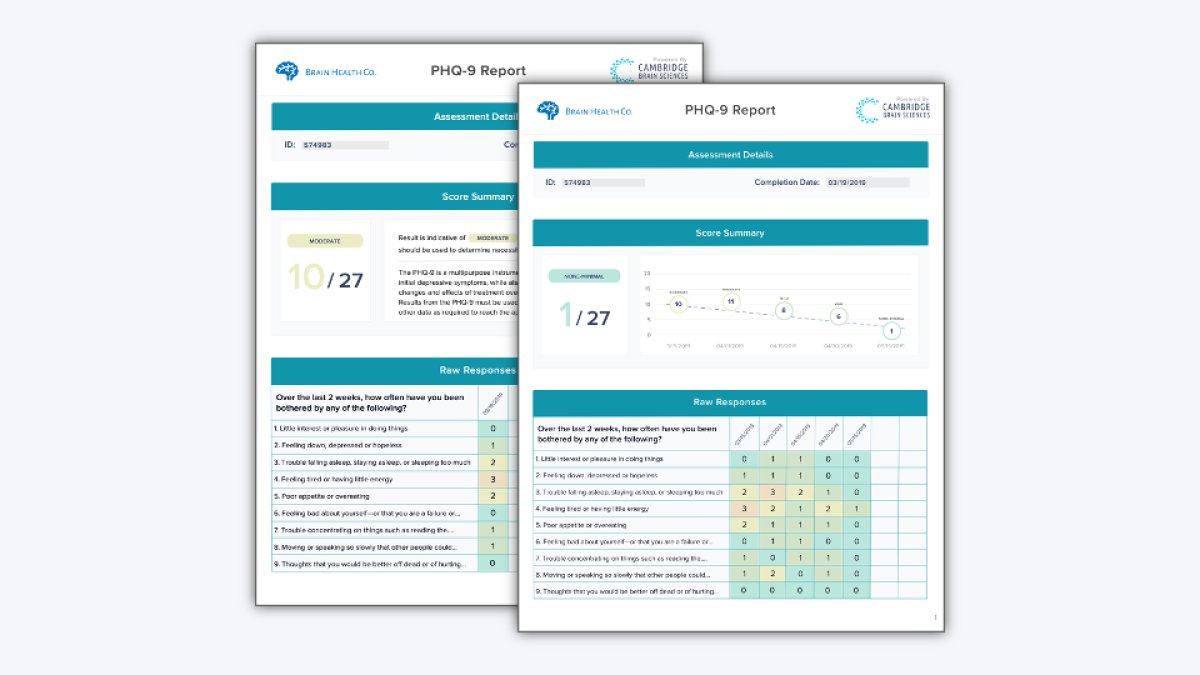
What is the PHQ-9 Measure for Depressive Symptoms?
Creyos Health has been updated to allow you to easily...
Read article
Enhance mental health services with the Patient Health Questionnaire (PHQ-9), digitized through the Creyos Health platform for convenience, efficiency, and accuracy.

Facilitate early detection, ongoing monitoring, and effective treatment for patients with depression—in the clinic or at home.

Streamline assessments with a standardized tool, delivered digitally through the Creyos Health platform, with automated scoring and reports.

Access actionable insights in real time with direct integration between patient results and EHRs to enable long-term tracking of symptoms.
Get a complete understanding of patients’ needs. Administer behavioral health questionnaires and measure the cognitive impacts of mental health conditions—all in one platform.
Review our guide below for a complete list of standardized questionnaires available in Creyos.

One new study (Desai et al., 2020) showed that depression, as measured by the PHQ-9, predicted both current and future scores on Creyos cognitive tasks. The reverse was also true—poor cognitive functioning is a risk factor for future depression.
For those treating mental health, both PHQ-9 scores and cognitive task scores are key measures that can identify baseline risk, refine treatments, and demonstrate the wide-ranging success of your care.
The Patient Health Questionnaire (PHQ-9) offered through Creyos is a nine-question self-assessment that measures the presence and severity of depressive symptoms over time. It offers patients and clinicians:

Clearly communicate to the patient that the PHQ-9 is a confidential tool designed to help them understand their mental health.
For in-clinic patients, launch the PHQ-9 in Creyos and hand the device to the patient to complete the questionnaire. For at-home administration, send the link to the patient to complete remotely.
Automatically receive questionnaire results directly in the Creyos platform and review with the patient.
Explain the meaning of the score and discuss next steps, such as additional assessments or treatment options.

A primary care practice launched its Healthy Minds initiative using the PHQ-9 alongside Creyos Health cognitive tasks to measure both cognitive function and depressive symptoms among patients, leading to increased patient engagement and care utilization.
The Healthy Mind visit, with a focus on mental and cognitive health, was successful in reaching patients who may not have otherwise sought care and supported positive clinical outcomes including early identification and treatment of depression and increased health confidence

Creyos Health has been updated to allow you to easily...
Read article

While depression is often characterized as a mental health...
Read article

About half of those who experience a mental illness during...
Read article